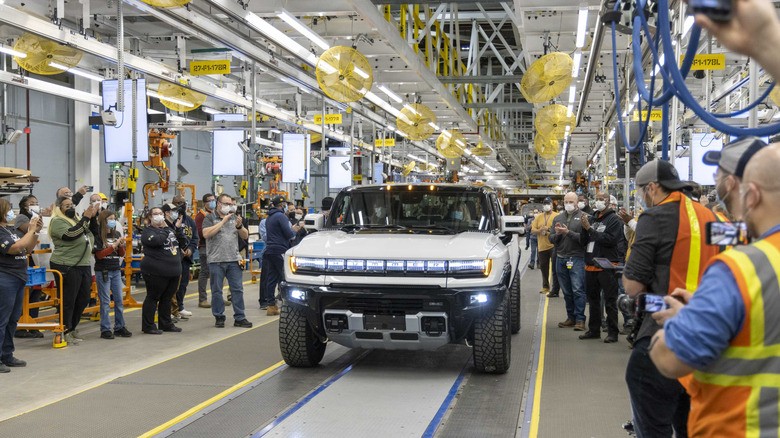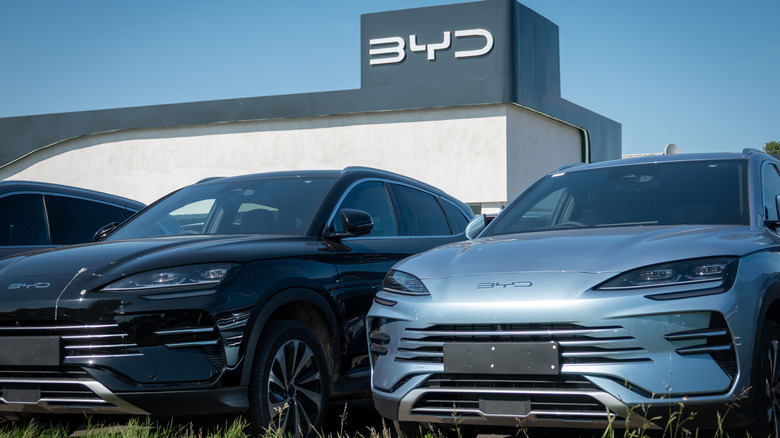
Last week, Bank of America analyst John Murphy rolled out his annual "Car Wars" report on the state of the auto industry, and his outlook for EVs is pretty depressing. Murphy isn't exactly bearish on the overall U.S. market – he sees yearly sales hitting an impressive 18 million new units in 2028 — but he highlights a lot of turbulence to come.
EVs are turning out to be a notable disappointment, with no comeback on the horizon. The disconnect is between the level of growth automakers thought they'd see and what they're actually getting. In Murphy's view (reported by Automotive News), there's actually a huge amount of unmet demand in the overall market, some 10 million vehicles, but the industry simply isn't building these cars and trucks, which skew to the lower-priced end of the spectrum.
Murphy pegs the peak of U.S. EV market share at 8%, for the next five years, blaming inconsistent support from the federal government. That's an extremely weak number when contrasted with global EV penetration being over 20% last year. And Murphy said 8% could be the top! That's a world of hurt for EVs in the U.S.
 General Motors
General Motors
Murphy isn't predicting a major downturn in the U.S., but he does foresee a reduction in new-vehicle launches and a commensurate degradation of consumer choice. Fewer than 30 new cars and trucks will be introduced in 2025, he thinks: a dismal prophecy, fraught with carmakers killing various projects. Over the next four years, Murphy said just 159 new models will hit the streets.
At least the U.S. isn't China. It's typical to look at the Middle Kingdom and its booming auto markets, with a relentless focus on dominating EVs, and conclude that the U.S. has lost the battle for the future. But Murphy instead sees a massive problem of overcapacity in China and the potential for a market collapse. A price war will eliminate all but the most competitive players.
Murphy's gloomy insights shouldn't be all that surprising. The market obviously got ahead of itself with EVs and needed both regulatory and tax-incentive support to keep the party going. With those factors set to be yanked, automakers have to drastically reduce their enthusiasm for EVs or risk destroying their already tough profit margins to unload unwanted vehicles at fire sale prices.
 Anna Barclay/Getty Images
Anna Barclay/Getty Images
Consumers have been quite clear in their demands for cheaper vehicles, but automakers have responded, when they control access to financing, with longer-term loans on expensive new cars and trucks. The 72-month loan has become the 84-month loan, residual values be damned, so that buyers can have a manageable payment. The average new-vehicle price was close to $50,000 in May. With interest rates in the 7% range, you'd need to make around $150,000 a year to afford the purchase – but most households clock in at well under half that figure. The used market offers little relief because customers priced out of new cars are bidding up prices.
In a word, this all sucks. The EV market is stalling out and will probably remain an option mainly for the affluent, and choice is going by the wayside as car companies converge on selling variations of the same old reliable things: pickups, big SUVs, and compact crossovers. The obvious fix is to open up the U.S. market all that excess Chinese capacity and let the cheap EVs flow in. But if you think that's likely to happen before Murphy's next "Car Wars" report, then I've got a bridge in Shanghai to sell you.
















